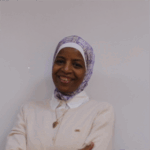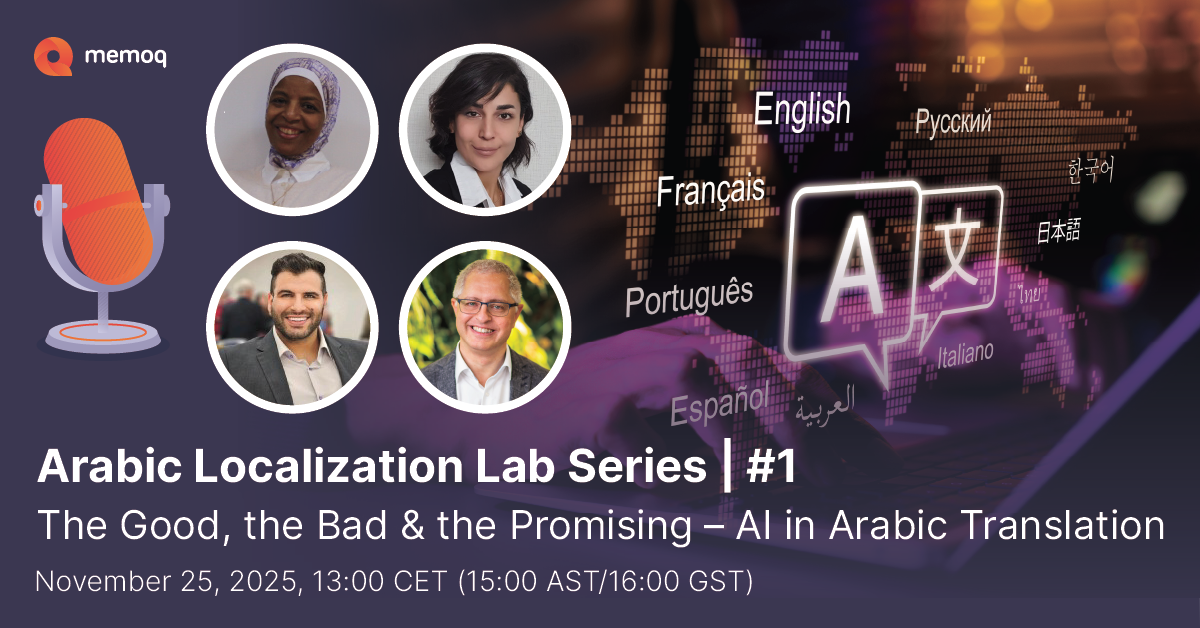What We Discussed
Everyone’s talking about AI in translation. But when it comes to Arabic, the conversation quickly gets complicated.
Arabic has a way of humbling even the most sophisticated AI systems, with its complex morphology, gender agreements, plural forms, regional variations, and cultural nuances. So where does AI actually deliver? Where does it fall flat? And what does this mean for Arabic language professionals?
Join Saudisoft’s Wafaa Mohiy, Dr. Hussein, and memoQ’s Balázs Kis for an honest, informal discussion about AI’s real-world performance in Arabic localization. We’ll explore:
- Which content types and industries see good AI results (with actual data)
- Where human expertise is non-negotiable
- How to measure and improve AI quality for Arabic
- What translation professionals should be considering for their careers
- Practical strategies for using AI without sacrificing quality
Come with your questions, your skepticism, or your success stories. This is a conversation, not a lecture.
About the Speakers

Balázs Kis – Chief Evangelist, memoQ
Balázs Kis is one of the founders and owners of memoQ. Originally an engineer in computer science, he later earned a doctorate in applied linguistics. Since 1994, he has been involved in translation technology and language technology research and development. As a member of MorphoLogic in the 1990s and 2000s, he participated in numerous projects in this field. Additionally, Balázs spent ten years in book publishing, where he managed IT titles and was one of the most published Hungarian technical writers of the time. As memoQ continued to grow, he expanded his responsibilities with new professional knowledge in areas such as compliance and mediation. Currently, his primary focus is on memoQ’s vision and strategy related to artificial intelligence.

Wafaa Mohiy – General Manager, Saudisoft
Wafaa Mohiy started her career more than 30 years ago in the internationalization/localization industry as a software engineer. Since that time, she has managed and supported many localization projects for clients around the world. Wafaa’s areas of expertise include management, automation and process enhancements, internationalization and localization, and translation automation and tools. With her proven record of achievements, she is now a member of Saudisoft’s board and is helping set the company’s strategic directions and goals. As an industry professional, she served as a two-term GALA board member. She is also one of the founders and a former board member of the Egyptian Association of Globalization and Language Solutions (EAGLS).

Hussein Abu-Rayyash – Ph.D. Candidate in Language Interpretation and Translation
Hussein Abu-Rayyash is a Ph.D. researcher in Translation Studies at Kent State University, USA. He also serves as a visiting instructor at Miami University. His work explores the intersections of AI and translation, automation, and Arabic language technologies, with a particular focus on audiovisual translation and cognitive processing. He teaches Arabic and translation courses and has published articles on AI-driven subtitling, eye-tracking studies, and the localization of Arabic content across media platforms.
About the Host

Norma Sbera – Business Development Manager, memoQ
Norma Sbera comes from the localization industry, where she spent nine years growing from translator to team lead and later managing regional partnerships across the MENA region. After building her experience in language, media, and client growth, she shifted into localization technology and joined memoQ as a Business Development Manager for the Arabic-speaking markets. With an IT engineering background and a long journey in Arabic content, she enjoys working at the point where technology, language, and real market needs meet.
Contact us!
Do you have any questions regarding events? Send us an email and we will get back to you shortly!
